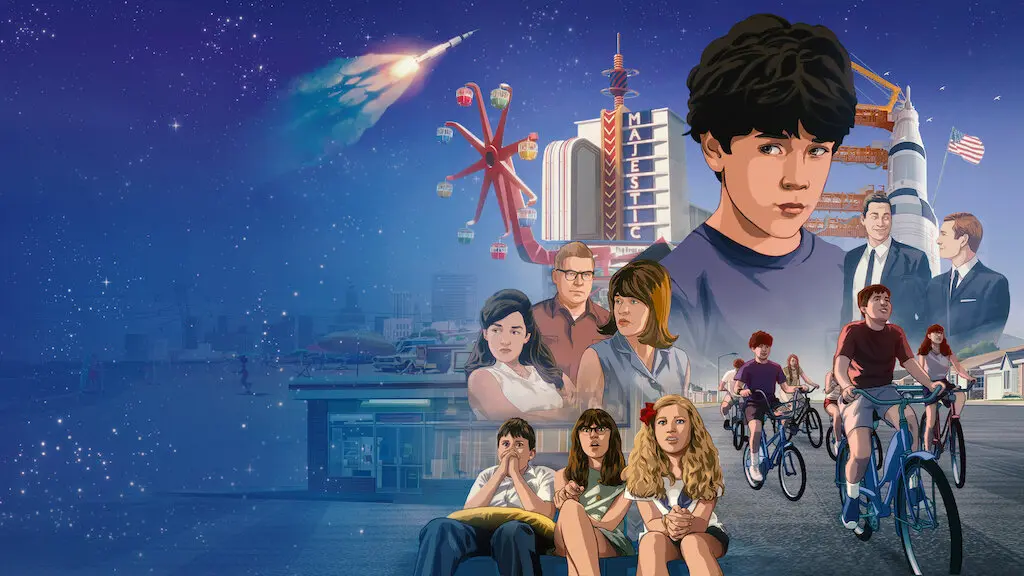We discuss the ending of the 2022 Netflix film Apollo 10½: A Space Age Childhood which will contain major spoilers.
Acclaimed filmmaker Richard Linklater’s animated feature Apollo 10½: A Space Age Childhood was released on Netflix. A tale of a young boy Stan and his upbringing in 1960s Texas is the movie’s main plot. Loosely based on Linklater’s childhood memories, he treats the whole film as a visual memoir instead of a typical period coming of age drama.
The story revolves around Stan’s experiences of that era, from the pop culture to the suburban culture to the adults’ reactions to the rapid changes in the world, most notably the influence of the space age on people. The story is told by now adult Stan (narrated by Jack Black) as he reminisces these events out of his memory. Thus the montages are used extensively throughout the movie. And with deft editing, these fragments of memories are woven and well-crafted as it takes us from one chapter to another of Stan’s childhood.
Apart from this bringing back the past nostalgia, Linklater uses another plot device, which in my opinion is unique to explore the coming of age aspects of growing up at that time. It revolves around a secret mission of NASA, named ‘Apollo 10 1/2’, before the original moon landing mission of ‘Apollo 11‘, where a group of NASA officials urges Stan to go on a voyage in space in their accidentally built small lunar module. Their sole purpose is to test the module and see the results. This is a real undercover mission with no one inquiring about it. Though Stan hesitates at first, he accepts the offer, as I previously mentioned, the influence of the space race in that decade. It seems pretty exciting for Stan. Even he knows he doesn’t get any recognition for that.
Apollo 10½: A Space Age Childhood Ending Explained
But the question arises here, does Stan go to space? Or is that his mere imagination? I am pretty skeptical about this thing as Richard Linklater shows us Stan’s landing on the moon intercutting the original landing on the moon. As Neil Armstrong lands on the moon, it juxtaposes Stan setting his foot on the moon’s surface. Also, when the original moon landing is being telecasted on television, we see Stan dozing on his sofa.
Stan may be dreaming in his mind of his space travel. Also, in my opinion, this space exploration is a metaphor for growing up. As the final credits come, we see the title comes that between 1969 to 1972, twelve men go to the moon (with one kid), and no one has come yet. This seems quite cryptic at first, but with thinking differently, it quite makes sense to me. As Linklater treats the film as a memoir of the lost time, I believe this quote means that no one ever gets back to that era, where a pivot of change is going on. In Stan’s case, space exploration is a part of the realization of maturing himself. Perhaps he is young, but he is not going to call his life long. And the sense of responsibility he is adapting is metaphorical to space exploration. As space is a giant hole waiting to devour yourself to realize one’s actual value in the cosmos, it is a philosophical quest to find oneself. Linklater makes that point with Stan. And thus Stan is never the same again after his space voyage — whether it is accurate or his mere imagination.
No matter what the director intends to do, it is evident that Apollo 10½: A Space Age Childhood successfully brings back the childhood nostalgia of every kid from 1960s America. Half a century later, when they see this film, indeed they will introspect what is lost during this time and what they gained. Perhaps this is how they value themselves in this universe (metaphorically).
What did you think of the Netflix film Apollo 10½: A Space Age Childhood and the ending? Comment below!




